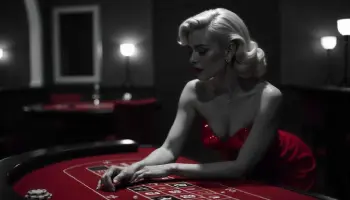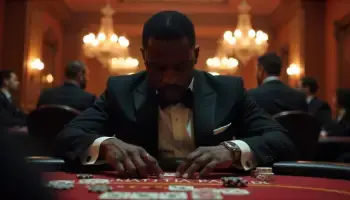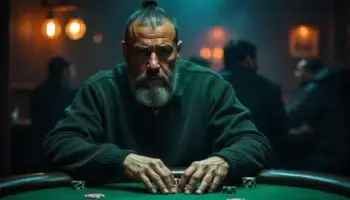Casino Cinema Across Continents: Exploring the Allure of Gambling in Film

iGaming News, Casino Reviews and Games

From the neon-lit glamour of Las Vegas to the quiet desperation of small-town gamblers, casino-themed films have captivated audiences across the globe. However, these stories take on unique cultural significance in countries like the United States, Canada, and New Zealand, shaped by national attitudes toward luck, law, and human nature. Whether through Hollywood blockbusters, gritty Canadian dramas, or introspective Kiwi narratives, the casino becomes more than a setting: it becomes a stage for ambition, downfall, and transformation.
This article examines how each region brings its cinematic voice to the gambling table and what these films reveal about our real-world relationship with risk and reward.
Opening Scene: Why Casino Stories Captivate Viewers
Casino stories draw attention because they dramatize extremes, sudden fortune, total collapse, and moral unraveling within tightly wound spaces built to suspend reality. Characters make high-risk decisions with permanent consequences, and there’s no time to prepare. This immediacy creates tension that doesn't need explanation. Every action counts.
Their real power lies in psychological conflict. Most gamblers believe they can outsmart the odds, though they rarely can. This gap between belief and reality reflects a universal tension between logic and desire, self-control and surrender. Viewers relate even if they’ve never placed a bet.
Casinos also act as condensed societies. Wealth and desperation sit at the same table. Dealers, tourists, loan sharks, and addicts coexist, bound by rules that can be bent but not broken. Writers don't need exposition; the environment itself creates tension. The meaning of gambling differs in countries like the U.S., Canada, and New Zealand. In tightly regulated environments, casinos symbolize rebellion or danger. In others, they reflect everyday temptation. That cultural lens shapes how stories unfold and how deeply they hit.
American Casino Films: The Spectacle and the Shadows

No American setting channels ambition, volatility, and obsession like the casino. Las Vegas leads with over 40 million visitors annually, drawn to neon excess, 24/7 action, and the illusion of control. With hidden corridors, surveillance, and high-stakes floors, the Strip feels like a set built for deception, power, and reinvention.
Atlantic City has its own tone. Once a booming resort town, it's now a symbol of survival, half-remembered glory surrounded by economic struggle. That contrast gives filmmakers a layered space: one foot in decline, one clinging to hope. It's not perfect, which makes it believable.
Poker tournaments offer a fierce intellectual challenge. The World Series of Poker attracts over 8,000 players each year, and prize pools exceed $90 million. But beyond the spectacle lies a subtle battle: reading bluffs, hiding nerves, and risking it all with a calm expression. This blend of strategy and psychology creates a cinematic tension that feels real and impossible to fake.
Key US Titles That Defined the Genre
These five films used casinos not just as backdrops, but as high-pressure environments where ambition and downfall are intertwined:
- Casino (1995): Martin Scorsese’s depiction of mob-run Vegas in the ‘70s is dense, violent, and accurate. The story revolves around two men running a casino under mafia control, one precise, the other impulsive. As power corrupts both, the film reveals how institutions built on vice are destined to implode. Every dollar has a price, and every loyalty has a limit.
- Ocean’s Eleven (2001): A sleek heist where charm replaces blood. The story follows a meticulously planned robbery across three Vegas casinos, mixing cleverness, timing, and confidence. While each character contributes a unique skill, it's the flawless teamwork that steals the spotlight. The house always wins—unless the players outsmart it.
- 21 (2008): Inspired by actual events, this film follows MIT students trained in card counting. They beat blackjack tables across Vegas, but pressure from casino security and inner-group tensions crack their unity. It’s a story of logic outmaneuvering chance until ego shifts the odds.
- Rounders (1998): A closer look at poker subculture. Mike is a gifted player who returns to high-stakes games to save a friend from debt. It’s set in dim basements and underground clubs, not luxury resorts. Every hand tests character, not just luck.
- The Cooler (2003): A man with awful luck is hired to jinx winning players in a classic Vegas casino. When he falls in love, his “curse” fades and the casino spirals. The film questions whether people can change or if they’re trapped by the roles they’ve been given.
These stories show that in American cinema, gambling isn't just a game; it's a test of character under the harsh glare of fluorescent lights.
Canadian Casino Films: Psychology Over Glamour

Canadian films rarely depict gambling in bright neon or lavish settings. Instead, they explore themes of isolation, silence, and moral decay. Characters gamble not for excitement, but in search of comfort, control, or escape, losing themselves long before the money disappears.
The settings are understated: a run-down motel, a dull office, or a budget hotel room. These modest spaces intensify feelings of emotional collapse, shame, and obsession. Where American films are loud, Canadian ones are quieter, with tension that lingers much longer.
Subdued, Complex, and Based on True Stories
These films dissect addiction rather than decorate it. Many are based on real cases or ethical dilemmas, unraveling slowly through psychological tension:
- Owning Mahowny (2003): Based on the case of Brian Molony, a bank manager who stole $10.2 million to gamble. Philip Seymour Hoffman plays Mahowny as quiet, compulsive, and frighteningly ordinary. There’s no glamour, just flights to Atlantic City, a girlfriend he neglects, and an addiction he can’t name.
- The Last Casino (2004): A math professor recruits students to count cards in Montreal casinos. Inspired by the same events as 21, this version strips away gloss. The students are desperate, the profits are temporary, and ethical lines blur with every hand. It's about pressure, not genius.
- Niagara Motel (2005): Multiple stories intersect in a decaying roadside motel. One subplot follows a couple drowning in debt and turning to gambling as a false solution. The film uses physical decline, flaking paint, and broken lights to mirror internal collapse.
- Hard Core Logo (1996): Though not about gambling, it dissects addiction and ego with raw precision. The story follows a punk band’s reunion tour, unraveling into self-destruction. It mirrors the emotional descent of compulsive betting, but with greater intensity.
- Heyday! (2006): Set during Canada’s WWII economic boom, it reflects on the early influence of money and luck. Gambling isn’t the centerpiece but emerges in the background, shaping character choices and hinting at cultural shifts in a changing society.
These stories have no big wins, only costs and unresolved questions.
New Zealand’s View: Gambling in Social and Cultural Context

New Zealand films often place gambling within broader struggles such as trauma, cultural pressure, or fractured identity. Bets are rarely strategic; they’re emotional. Whether it’s Māori youth pulled into cycles of crime or parents numbing regret at pokies, gambling becomes tied to survival or silence rather than thrill.
Addiction is portrayed with depth. These characters aren’t chasing risk, they’re escaping something heavier. The visual tone is intimate, with settings like pubs, garages, and community halls. It’s not about spectacle—it’s about personal collapse in public places.
Key New Zealand Films and Series Featuring Gambling Themes
In these stories, gambling doesn't drive the plot; it exposes the cracks beneath the surface:
- What Becomes of the Broken Hearted? (1999): Jake Heke, once violent and proud, is now isolated and grieving. Gambling becomes a way to fill the void left by family and pride. The film links risk-taking with male identity and emotional repression, particularly among young Māori men.
- The Dark Horse (2014): Based on the life of Genesis Potini, a chess player with bipolar disorder. While not a gambling film per se, it frames risk, legacy, and instability as constant forces in a life torn between chaos and purpose. The tension mirrors that of addiction without naming it outright.
- Outrageous Fortune (2005–2010): A comedy-drama about a West Auckland crime family trying to go legit. Gambling, as pokie machines, underground deals, or betting schemes, appears regularly. These habits reflect generational patterns of risk, entitlement, and hustle.
- Stickmen (2001): Three friends get pulled into a pool tournament run by a violent criminal. It’s slick, fast, and loaded with under-the-table bets. Gambling becomes a test of loyalty, confidence, and how much you're willing to push when you have something to prove.
- Second Hand Wedding (2008): Is a rural comedy where pokies culture quietly weaves its way through the lives of its characters. Set in a small New Zealand town, the film subtly reveals how gambling has become an everyday fixture, influencing personal dynamics and daily routines. The film doesn’t portray gambling as a dramatic force but as a silent, pervasive presence—shaping lives and relationships in ways that go unnoticed until the damage becomes undeniable.
These films aren’t about the spin of the wheel. They’re about what’s at stake when people play with things they can’t afford to lose time, trust, or identity. The losses may not be immediate, but their effects are long-lasting.
Betting on the Real World: Influence of Casino Films on Gambling Habits
A flashy casino scene on screen can spark real bets within hours. In the age of mobile access, the line between watching and playing is thinner than ever, especially in countries like the U.S., Canada, and New Zealand, where online gambling platforms are widespread or rapidly growing.
Casino films often romanticize risk, showing wins as clever or deserved. That glamor appeals strongly to younger audiences, who are also the most active users of online casinos. With live dealer games, cinematic interfaces, and VIP systems, many gambling platforms now intentionally mimic movie aesthetics, turning viewers into players with minimal friction.
In the U.S., where online gambling is expanding state by state, spikes in user interest often follow popular streaming releases with gambling content. Also, in Canada, legal online betting through government-run platforms like OLG and PlayNow has made it easier than ever to act on curiosity sparked by a film. In New Zealand, where online casino access is limited to overseas sites, movies can still nudge behavior by portraying gambling as social or emotionally driven.
While some films hint at addiction or consequences, the entertainment-first framing often blunts those messages. For online operators, this subtle glamor creates a promotional effect without a single ad, one that regulation hasn’t fully caught up with.
Casino Cinema in the Streaming Era: What’s Next?
Streaming platforms are shifting casino narratives toward realism, interactivity, and global reach. Here's how the genre is evolving with technology and viewer demand:
Growth of Gambling Content on Streaming Platforms
Netflix and Amazon Prime have added more gambling-centered titles, including Molly’s Game and episodes from Dirty Money and Bad Sport. These are based on actual events, shifting from stylized fiction to fact-based, investigative storytelling.
Expansion of Virtual and Hybrid Formats
Platforms like PokerStars VR and social casinos like Huuuge Casino are shaping the visual language in contemporary productions. Some filmmakers are utilizing game engines for pre-visualization and experimenting with hybrid interactive film-game projects, though these remain limited in scope.
Global Indie Perspectives on Gambling
Independent films and docuseries now highlight local gambling cultures from crypto betting in Eastern Europe to informal street games in Southeast Asia. These projects often bypass traditional theatrical routes and go directly to niche streaming services or festival platforms.
Support for Regional Voices (Canada, NZ)
Institutions like Telefilm Canada and the NZ Film Commission support content that portrays gambling through a socio-cultural lens. Canadian streaming originals have addressed online betting addiction, while New Zealand short films increasingly tackle pokies' culture and family impact.
Experimentation with Interactive Storytelling
Creators on platforms like Twitch and YouTube Live are testing choose-your-path gambling stories. Though not mainstream, these interactive formats may influence future scripted streaming content, especially for younger audiences.
Conclusion: Lights, Camera, Wager?
Casino films don’t just follow the chips, they follow the laws, habits, and anxieties of the countries they come from. The screen often celebrates control, tactics, and big wins in the U.S., where online gambling is now legal in over 30 states. That tone matches a culture where betting is increasingly mainstream and instantly accessible on your phone.
Canada takes a different route with government-run platforms like PlayNow. The focus in film shifts toward regulation, accountability, and personal collapse. It’s less about the thrill and more about the fallout. In New Zealand, where online casinos operate offshore, the stories rarely revolve around glamour. Instead, they highlight pokies, debt, and the quiet ways risk fractures families. The camera may roll the same, but what it captures and what it means changes with the borders.

Bailey Haun
iGaming News, Casino Reviews and Games
I’m a passionate writer with over a decade of experience in the online gambling industry. Specializing in casino reviews, news, and game strategies. My background in journalism allows me to analyze casinos critically, focusing on key aspects like bonuses, game selection, and customer service.
